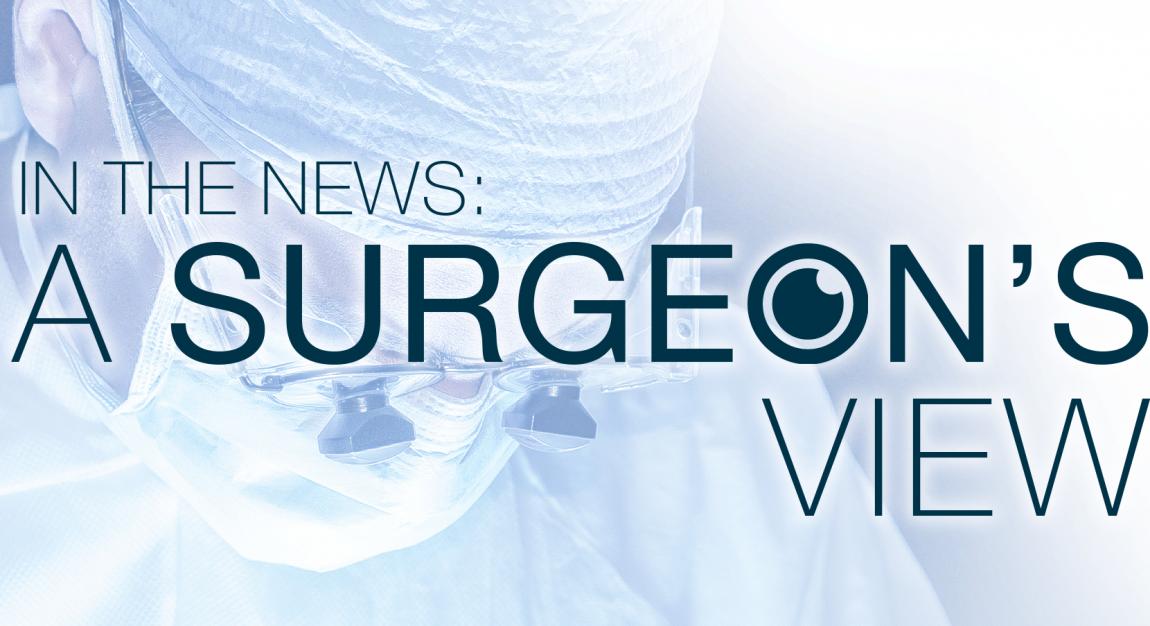- In a recent survey, the majority of attending surgeons reported having witnessed sexual harassment; however, only a fraction immediately intervened.
- Dr. David Tom Cooke urges every member of the surgical team to be vigilant and to speak up against harassment.
On August 24, 2019, the article, "Sexual Harassment & Cardiothoracic Surgery - #UsToo?" (DuyKhanh P. Ceppa, Scott C. Dolejs, Natalie Boden, et al.), was published in The Annals of Thoracic Surgery.
Dr. David Tom Cooke describes the article findings, what they mean for the cardiothoracic surgery specialty, and his view on the topic of sexual harrassment within the cardiothoracic surgery specialty.
No Such Thing as an Innocent Bystander
Bob Cousy and Bill Russell are Hall of Fame basketball players who led the Boston Celtics to six championships from 1957 to 1963. That dynasty also existed during the Jim Crow law-era. These laws were a collection of state and local statutes that legalized racial segregation and existed for almost 100 years, from the post-Civil War era until 1968. Decades later, Cousy, who is white, was asked during an interview about the racist harassment faced by Russell, who is black.
“We could’ve done more to ease his pain and make him feel more comfortable. I should’ve been much more sensitive to Russell’s anguish in those days. We’d talk …,” Cousey responded. At that point, he broke down in tears. A half century worth of guilt for failing as a bystander finally surfaced. We are currently in the #MeToo era, and none of us can afford to be innocent bystanders.
In an eye-opening query of the sexual harassment experiences within the cardiothoracic surgery workforce, Ceppa et al. surveyed members of The Society of Thoracic Surgeons, Women in Thoracic Surgery, and the Thoracic Surgery Residents Association. The results are disturbing.
- Both men and women reported having been at some point during their medical careers sexually harassed.
- 81% of female attendings and 90% of female trainees experienced sexual harassment.
- Compared to men, a significant number of female respondents have “declined a job or left a job” due to sexual harassment.
Equally sad are the “bystander” results.
- 71% and 51% of female and male attending surgeons, respectively, reported witnessing sexual harassment.
- But only 15% and 12% of women and men, respectively, immediately intervened and prevented the event from escalating.
- The results are similar for trainee bystanders.
A major limitation of the study is the survey’s 12% response rate. Because of the low response rate, the results of the survey may not represent the experiences of a majority or even a plurality of the target population. However, the results identify important experiences of many members of the cardiothoracic surgery workforce.
Creating a work culture of professionalism, personal safety, and inclusiveness is a team effort. When seeing a colleague who is undergoing sexual harassment, whether it is being subjected to sexually crude jokes, unwanted sexual attention, or even quid pro quo sexual coercion, bystander intervention is a must.
We are currently in the #MeToo era, and none of us can afford to be innocent bystanders.
David Tom Cooke, MD
- Pay attention. Don’t look away or pretend it’s not happening. Be noticed noticing.
- Identify the problem. In the survey, there is a 20% difference in the female and male attending respondents who have witnessed a sexual harassment event. This could mean that perhaps 20% of men have their heads in the sand. If you see something that seems off, err on the side of action, and intervene.
- Speak up. Say something. State that a joke is inappropriate or call out someone’s behavior as out of line.
- Don’t be afraid. No one likes awkward moments. Bystander intervention can lead to uncomfortable situations and personal dynamics. But to effect meaningful change, we must become comfortable with being uncomfortable.
- Report. Some activity may warrant reporting to human resources, a local governing board, or even the police.
The cardiothoracic surgery community is a society of problem solvers who use expertise and innovative thinking to restore health. By getting off the sidelines and using our immense skills, we can break toward a more inclusive specialty.
David Tom Cooke, MD, is a General Thoracic Surgeon at the University of California, Davis School of Medicine and UC Davis Health. He is the Section Head of General Thoracic Surgery, the Program Director for the Cardiothoracic Surgery Residency, and is the Department of Surgery Vice Chair for Faculty Development and Wellness. Dr. Cooke also is the Chair of the STS Workforce on Diversity and Inclusion and Workforce on Annual Meeting.
